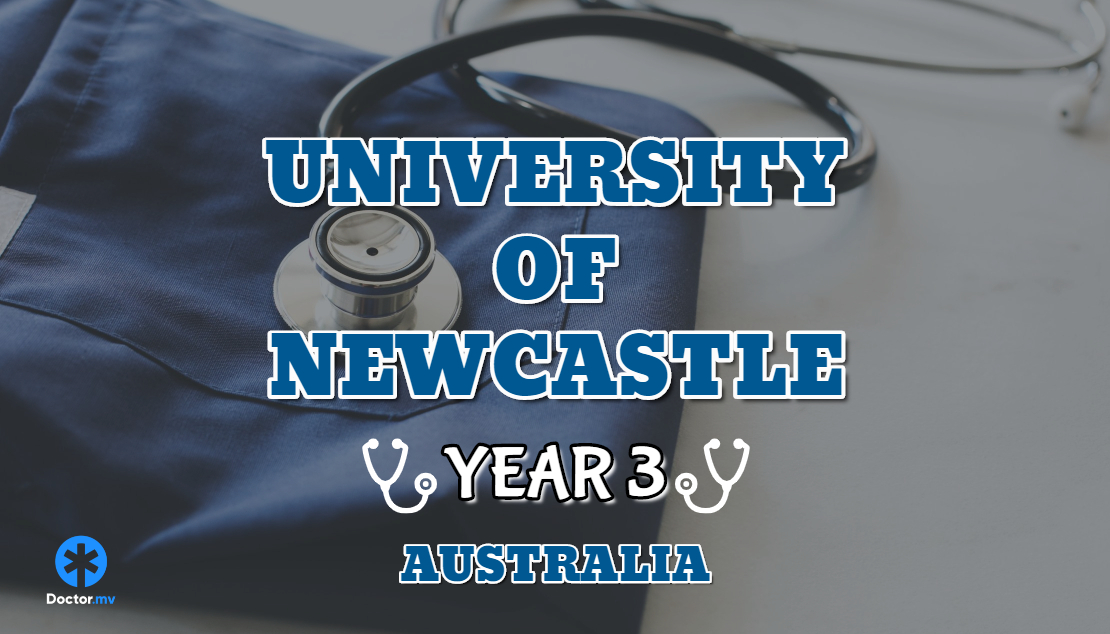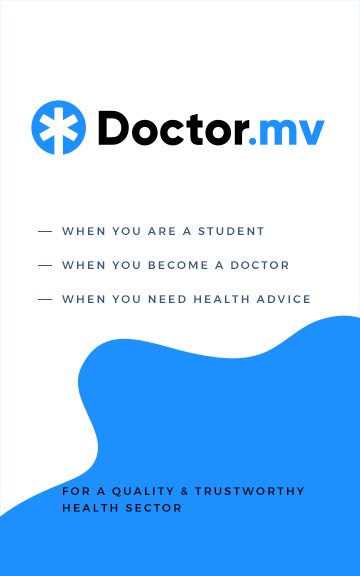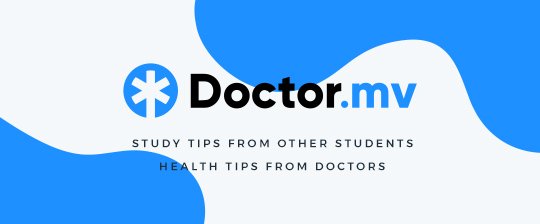I'm LAM'AAN LATHEEF and this is My Medical Student Life

Nabeel Ibrahim
Published on: 08/09/2019
Third Year Australia University of Newcastle Aishath Lam'aan LatheefUniversity
University of Newcastle
Current Year
Third
Medical Specialty Interested in
Neurology
Most Inspiring Person
My mother
Single Quality that defines a great Doctor
Empathy
First of all, walk us through the step-by-step processes that you went through to get to where you are today?
I did my O'levels in Aminiya school and went on to complete my A'levels in Centre for Higher Secondary Education. I strived to achieve first place in A'levels as I had hoped to attain the presidential scholarship and by God's blessing, I managed to achieve it. I did not have any specific career in mind at that time. I had chosen to cross milestones step by step and had not planned ahead for what I wanted to do in the future.
Once I had completed my A'levels I finally began to explore my options. I have always had a passion towards science and physics and maths were my favourite. Therefore, I decided to do an internship at Island Aviations and see if it was the right fit for me. However, I realised that even though I had a strong love for physics, engineering was just not for me.
After exploring many career pathways I decided that the best choice for me is medicine and began my journey in medicine.
I applied to many universities, and after several applications I finally got accepted into International Medical University (IMU), Malaysia. I started my course in August 2016 and completed my phase 1 in November 2018, after which I was transferred to University of Newcastle Australia to complete the rest of my course.
When did you first realize you wanted to study medicine?
Ever since I had obtained the scholarship, everyone had been repeating the same thing to me and that was that I should become a doctor. I truly wondered if I was capable of becoming a doctor as I was aware of the challenges of becoming a doctor. I then began researching more into it and with the advice of peers and my family, came to the realisation that it would be a suitable career for me. I have always wanted to do something that was beneficial to the society and be able to contribute, and I have a love for studying and gaining knowledge so becoming a doctor would be something I would love to do. With the encouragement of my family and my friends, I then decided to study medicine.
Take us through a typical study day.
I normally wake up early in the morning for prayers. On weekdays, I normally head to the hospital for my usual rotations and come back around evening or late afternoon.
After this, I would have lunch or dinner and rest for an hour, before starting on my studies. I normally study continuously for an hour and then take a half an hour break and study again for another hour, which I repeat until I am done for the day. If I have upcoming exams, I continuously study the entire night, as I prefer studying at night and during early mornings.
Otherwise, I normally spend about 2-3 hours on studies during weekdays outside of what I learn at the hospital. As I have to go to the hospital very early, I try to go to bed sometime between 11pm and 12am.
How do you keep a study routine during the exams?
The first thing I always try to do is make a list of all the things I need to study. Then I try to categorise them and make a timetable. I write which topics I would like to learn on which day and try my best to achieve the goals I need to obtain for each specific day. This helps me keep track of my progress and reduce my level of stress as it ensures that I will be able to complete studying and revising everything before my exam.
As I mentioned before, I normally study continuously for an hour and then take a half hour break. However, sometimes I continuously study for more than two hours at times as well. My main aim is to cover all the content and be able to revise them at least once so that I can understand and remember as much as I possibly can.
What is the best thing about living abroad?
Living abroad has helped me grow as an individual. It has made me become a more independent and responsible adult. I have developed many skills and gained a better understanding of the world by living outside of my comfort zone. It has also made me become more grateful of the things I had back at home and all the efforts my parents had made for me to reach where I am.
I have also made a lot of new friends that I am extremely grateful for and made memories to last a lifetime. I have gotten to travel to many places within Malaysia and had some very exciting experiences as well.
Name your favorite medical text book.
The three medical textbooks that have helped me the most are:
Robbins Basic Pathothology by Kumas, Abbas and Aster;
Gray's Anatomy by Henry Gray;
Ganong's Medical Physiology by Susan M. Barman, Scott Boitano and Heddwen Brooks
Why is being updated on the latest medical findings important for the ordinary citizen?
Medicine is relevant to every citizen and therefore latest medical findings should be relevant to every citizen as well. It helps individuals have a better understanding of treatment options and in making informed decisions regarding them as well.
What do you know now that you wish you knew when you first started medical school?
There isn't anything particular that comes to mind. However, when I started doing medicine I was not aware that I could do my internship back at Maldives after I am done. I came to know of this later on.
What do you think needs to change in the health industry of the Maldives today?
I believe it is important to establish a good primary health care system in Maldives. In most other countries, it is not difficult to go see a doctor for their troubles because of the establishment of a good primary health care system that allows them to go see their local General Practitioner and are not reliant on having to go to the hospital every time they need a follow up. We often hear of long queues and waiting lists because of the lack of this system and because everyone would rather go to a specialist than to a GP. To resolve this, I believe it is important to have GP clinics with proper Family Medicine specialists in consultation.
Finally, what is the one tip/advice you want to give to our readers?
What I have learnt from my years of school and university is that it is important to do hard work to attain your goals, but that it is also okay to relax. Students often work themselves to exhaustion and forget to take care of themselves. We often forget that as important as studies and career are, it is still more important to take care of our own health and wellbeing first. Wealth and prosperity will come and go, but what we will always have is ourselves. So always take care of yourself first, and then work towards your goals. With God's blessings, everything will turn out alright.
The My Medical Student Life series was created for the sole purpose of helping medical students and aspiring doctors on their journey to become a successful Maldivian Healthcare Professional. Have a suggestion, idea or question? Email us.



Leave a comment
0 Comments